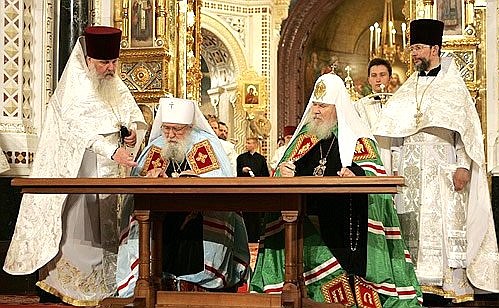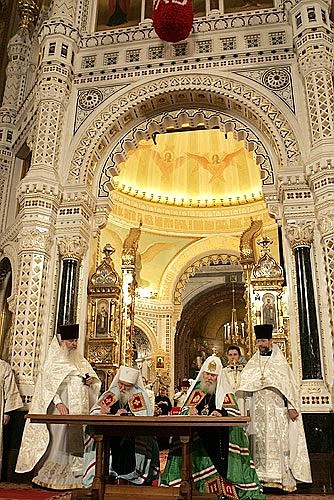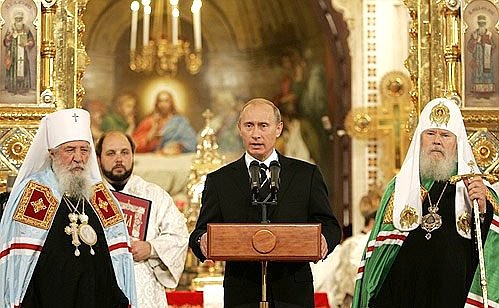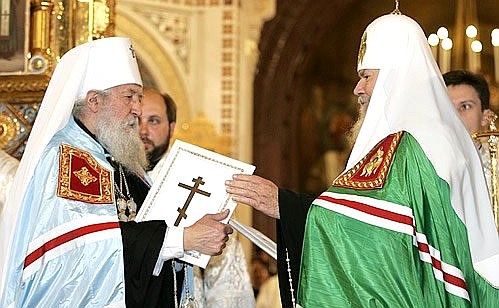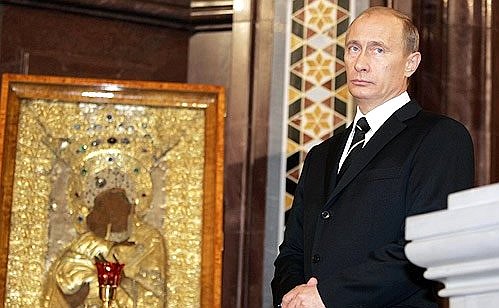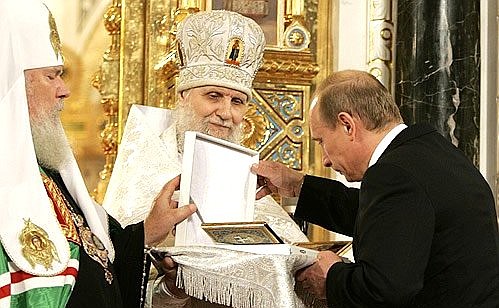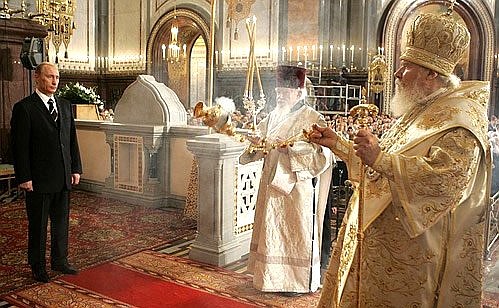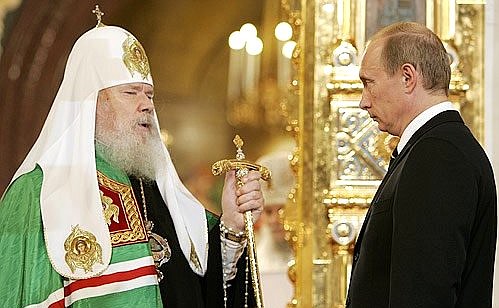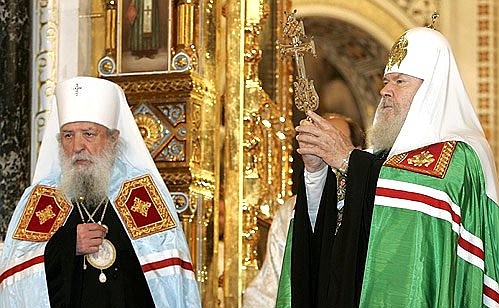Patriarch of Moscow and all-Russia Aleksii II and First Hierarch of the Russian Orthodox Church Abroad Metropolitan Laurus signed the historic document.
At the ceremony Mr Putin said that signing the Act on Canonical Communion is an event that affects all Russians, is of historic proportions, and has a huge moral significance.
The restoration of unity in the Church is an essential prerequisite for the restoration of the lost unity of the entire Russian world, a world in which the Orthodox faith has always acted as a spiritual foundation.
Signing the Act on Canonical Communion implies that the Russian Church Abroad will return to the Moscow Patriarchate as well as the entire Orthodox community that, so far, has never recognized the Russian Orthodox Church Abroad. Now, as part of the Mother Church, parishioners of the Russian Orthodox Church Abroad will be able to take communion in all Orthodox churches in the world and its clergy will have the right to conduct services together with the hierarchs and clerics of the 15 local Orthodox churches.
According to the Act on Canonical Communion the Moscow Patriarchate recognises the Russian Orthodox Church Abroad as an “integral self-governing part of the local Russian Orthodox Church” that is “independent in pastoral, educational, administrative, economic, real estate and civil affairs” but, at the same time, is “in canonical harmony with the entirety of the Russian Orthodox Church”.
The Russian Orthodox Church Abroad will continue to be governed by its own Council of Bishops and will choose its First Hierarch based on its own charter. Following this election, the choice will be “approved in accordance with the norms of the canonical law of the Moscow and all-Russia Patriarch and the Holy Synod of the Russian Orthodox Church”.
Major decisions, such as those about the Church’s constitution or the elimination of dioceses of the Russian Orthodox Church Abroad, will also be made in concordance with the Patriarch and the Moscow Synod. The election of bishops from abroad to the Council of the Russian Orthodox Church Abroad must be approved “on canonical grounds” by the Patriarch and the Synod of the Moscow Patriarchate, since all newly elected bishops become full members of the Local Council and the Council of Bishops of the Moscow Patriarchate, and also receive the right to participate in work of the Moscow Synod in due course.
The document also provides for a five-year transitional period to fully harmonise the provisions of the former parishes of the Russian Orthodox Church Abroad on the canonical territory of the Moscow Patriarchate by integrating them into the jurisdiction of local bishops.
At the beginning of April the Patriarch of Moscow and all-Russia Aleksii II invited Russian President Vladimir Putin to the ceremonial signing of the Act on Canonical Communion and emphasised the head of state’s contribution towards reunifying the churches. At the meeting with the Patriarch of April 2, 2007, the President called this reunification one of immense significance not only for religion but also for society. It marked the end of a division between the church in Russia and the church abroad that existed for more than 80 years.
